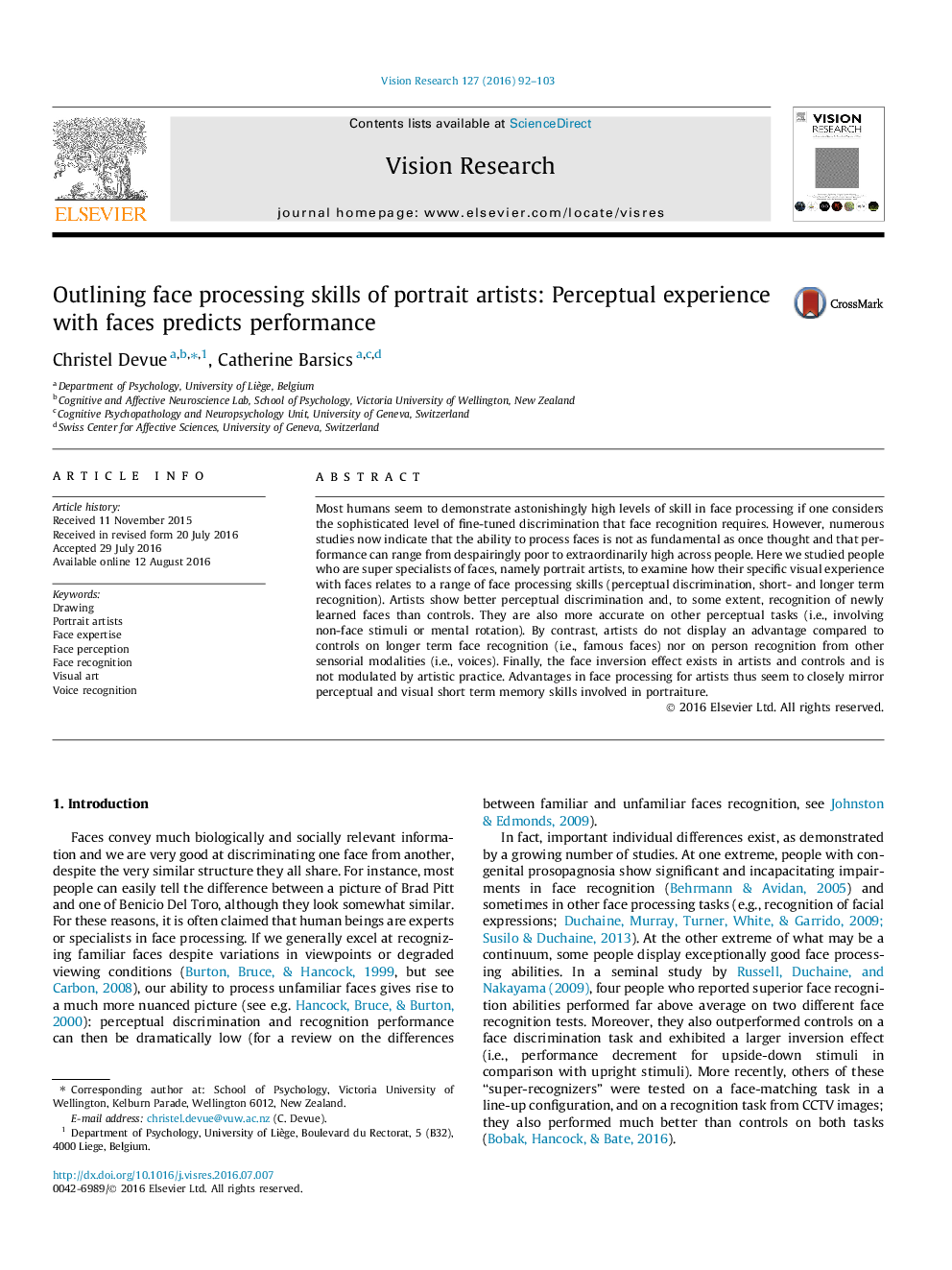| Article ID | Journal | Published Year | Pages | File Type |
|---|---|---|---|---|
| 6202879 | Vision Research | 2016 | 12 Pages |
•Portrait artists have finer perceptual skills with faces and non-face stimuli.•Portrait artists show some advantage when recognizing recently learned faces.•Artistic practice does not predict recognition of celebrities from long term memory.•Face processing skills of portrait artists mirror skills involved in portraiture.
Most humans seem to demonstrate astonishingly high levels of skill in face processing if one considers the sophisticated level of fine-tuned discrimination that face recognition requires. However, numerous studies now indicate that the ability to process faces is not as fundamental as once thought and that performance can range from despairingly poor to extraordinarily high across people. Here we studied people who are super specialists of faces, namely portrait artists, to examine how their specific visual experience with faces relates to a range of face processing skills (perceptual discrimination, short- and longer term recognition). Artists show better perceptual discrimination and, to some extent, recognition of newly learned faces than controls. They are also more accurate on other perceptual tasks (i.e., involving non-face stimuli or mental rotation). By contrast, artists do not display an advantage compared to controls on longer term face recognition (i.e., famous faces) nor on person recognition from other sensorial modalities (i.e., voices). Finally, the face inversion effect exists in artists and controls and is not modulated by artistic practice. Advantages in face processing for artists thus seem to closely mirror perceptual and visual short term memory skills involved in portraiture.
